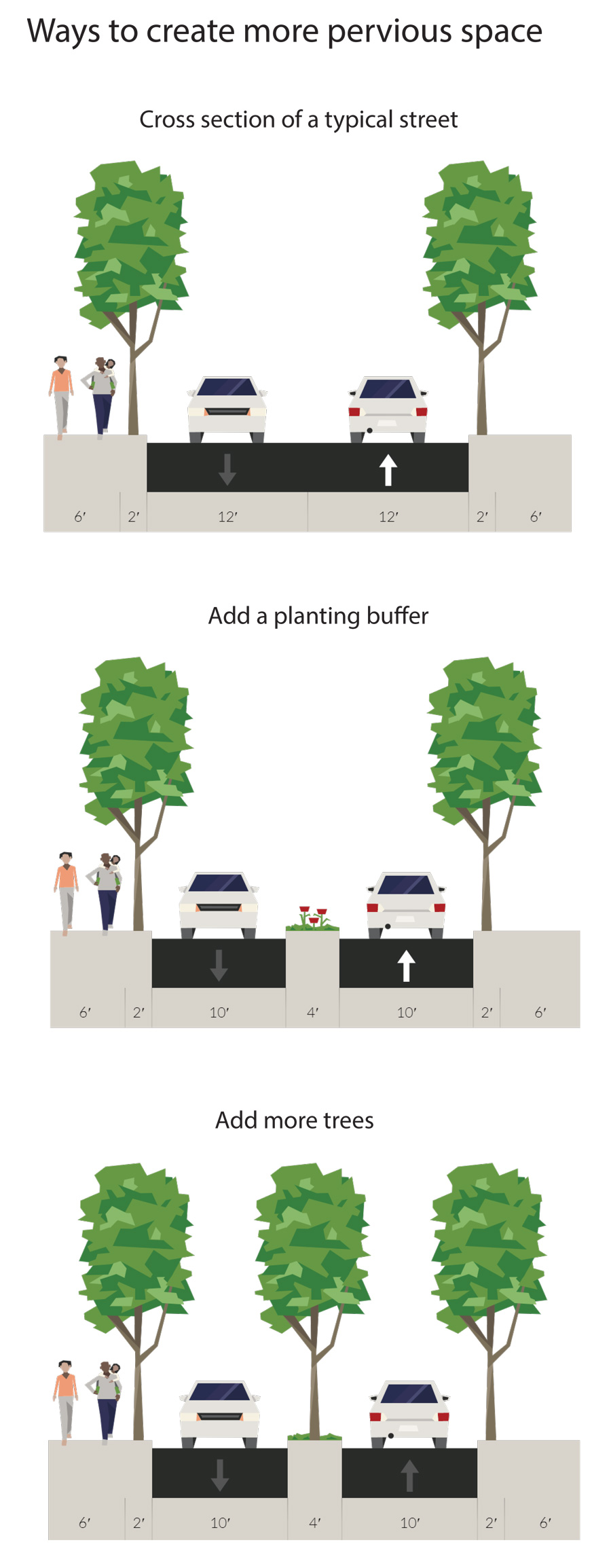Strategy 3 Incorporate carbon-reduction design elements into City infrastructure projects.
The actions within this strategy are divided into two categories:
Action we will DOActions we will SUPPORTAction we will do are followed by “DO” and are colored in dark gray, and actions we will support are followed by “SUPPORT” and are colored in light gray.
Learn more about how we get thereThis strategy goes beyond how people travel to consider actions that are aimed at the materials we travel on and the impervious space they cover. Continuing to test and evaluate materials as they become available for inclusion in our capital transportation projects to increase product longevity and reduce environmental impacts, minimizing the footprint of the impervious portion of the street design and being open to alternatives to salt and sand that meet objectives around safety in snow and ice are the focus of the strategy.
Actions to incorporate carbon-reduction design elements into City infrastructure projects.
Design 3.1
Test and evaluate traditional, new and emerging techniques in pavement materials, utilities, and other public infrastructure to increase material longevity and reduce lifecycle carbon footprint.
Supported goals:
Climate
Related actions:
Difficulty:
Low
Timeframe:
2020-2023 (Years 0-3)
Status:
On-going
Design 3.2
Update the Street Design Guide to reflect evaluations and best practices related to environmental stewardship objectives.
Supported goals:
Climate
Related actions:
Difficulty:
Low
Timeframe:
2020-2023 (Years 0-3)
Status:
On-going
Design 3.3
Reduce the negative environmental impacts of street designs by decreasing the amount of asphalt or concrete in favor of increasing green space.
Supported goals:
Climate
Related actions:
Difficulty:
Medium
Timeframe:
2020-2023 (Years 0-3)
Status:
On-going
Design 3.4
Continue investigating alternatives to traditional salt and sand winter maintenance and continue to train staff in related topics such as the Minnesota Pollution Control Agency Smart Salting.
Supported goals:
Climate
Related actions:
Difficulty:
Low
Timeframe:
2020-2023 (Years 0-3)
Status:
On-going
